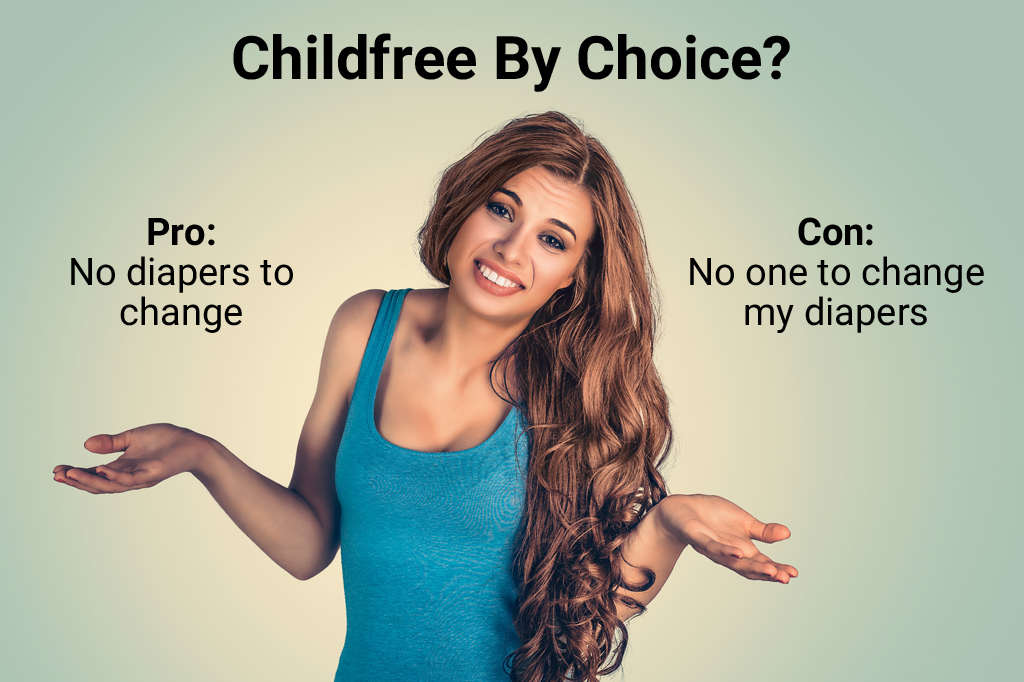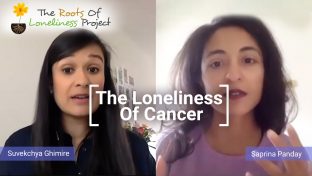- Childfree refers to not having children by choice.
- Childless means not having children due to infertility or other challenges.
Being Childfree Was My Choice, But It Can Be Lonely For Some
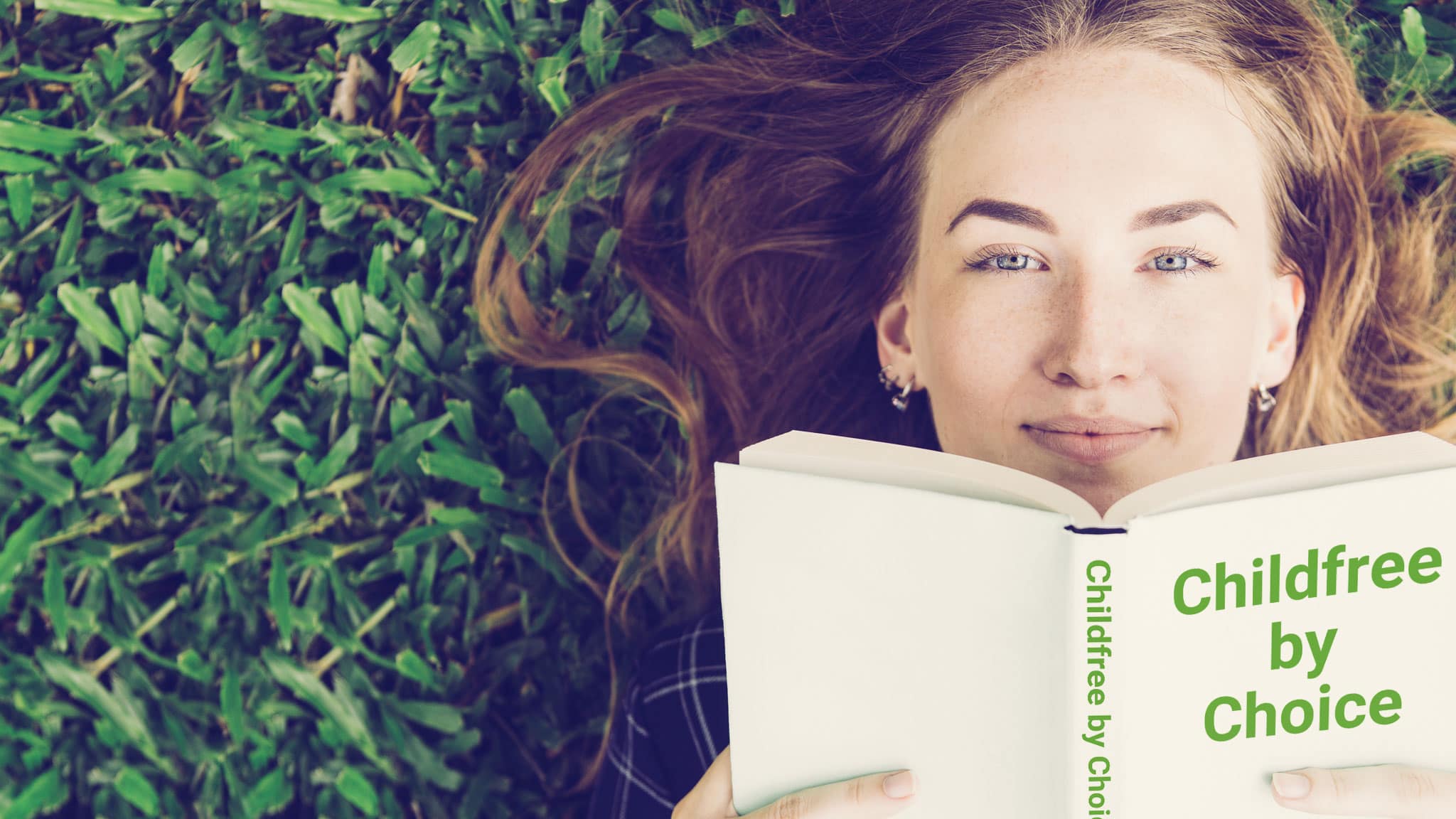
The choice to go childfree isn’t an easy one and it can be accompanied by feelings of loneliness for some.
- One survey by the U.S. Census Bureau found that 47.6% of women between 15 and 44 had no children so you’re not alone if you count yourself among them.
- If you worry about “missing out” on parenthood, read, talk to people on both sides of the spectrum, and weigh the pros and cons to decide which matter most to you.
- It never hurts to find childfree friends or at least spend time around those who aren’t judgmental about your decision to go childfree.
- There are many ways to be a “mother” or caretaker and make the world a better place — without raising kids.
Struggling with loneliness or having a mental health crisis?
- Suicide Prevention Lifeline: 1-800-273-TALK (8255); Deaf or hard of hearing dial 711 before the number or connect via online chat
I am a childfree woman.
I’ve known pretty much from childhood that I would probably never reproduce, and I’ve whizzed past the “you’ll change your mind” and “it’s different when they’re yours” comments like a Ducati on an open highway.
Now, well into my forties, I’m married, I’m childfree…and I’m happy.
And I’m not alone.
Times have changed, and having kids isn’t the imperative it used to be.
The U.S. Census Bureau’s Current Population Survey reports that, in 2014, 47.6% of women between 15 and 44 had no children, and that percentage is the highest since they began collecting data in 1976.
In other words, more women and couples are childless than ever before. And, for many, kid-free status is something they actively choose.
Deciding whether or not to have children ranks pretty high on the list of Big-Life-Decisions. Why? Because either choice will have a huge impact on your life, and that impact is pretty much irreversible.
Which means choosing to have kids — or not have them — is not a decision you leave to chance. You want to choose based on your personal values rather than defaulting to having kids because everyone else is…or worse, caving to the naggers and shamers.
I did that very thing.
Even though I knew I’d probably never have kids, I gave myself a long time to consider the possibility that I might change my mind. I examined my values and I took a hard look at both sides of the issue.
Why Some Women Choose To Be Childfree
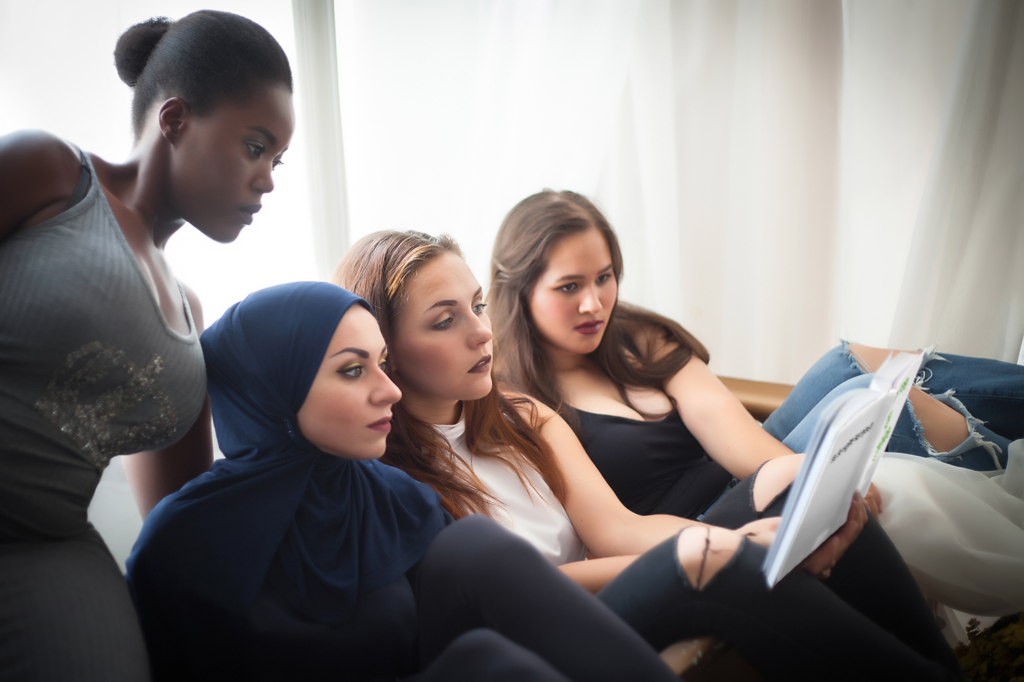
First, it’s important to clarify that childfree is different than childless.
With the former, you’re choosing to not have children, whereas childless means you wanted children but infertility or other factors got in the way.
I’ll cover the one I know something about (being childfree), and leave the latter to those who’ve been there.
But even within the realm of childfree, not everyone is the same. Every woman arrives at the decision to forgo children differently.
For example:
- No Desire For Children: Some women (like me) simply lacked a strong enough desire to have kids and therefore never pursued that avenue.
Sure, maybe they had that year in their early 30s where they considered it or that one time when they fell in love with Dreamy McDreamiest and imagined their tiny Dreamkids, but the genuine urge never really hit them.
In many cases, they’ve chosen to focus on other things (I’ll talk more about this later).
- Some Desire For Children: Other women had some desire for kids, but something changed their minds.
One couple I’ve known for years, both educated outdoorsy types, decided they cared more about preserving the environment (kids are costly to the environment) than having their own kids.
A client of mine with a successful business said, “There’s only so much time in the day, and I can either run my company or run my household, but not both.”
- Scared Straight: Other women watched their friends experience the ups and downs of having a family and said, “Umm, no thanks.”
Still, others had a rougher start in life or see the state of the world and decided, like Mariah, that they would “never bring a child into this world.”
- Life Got In The Way: Then, there are the women who wanted children, and perhaps even dreamed about being pregnant, but one way or another, life threw obstacles at them and the babies never quite materialized.
Megan, a client of mine who didn’t marry until she was forty, said, “You know, I wanted a baby. But by the time I met the right guy, it seemed too difficult to start now.”
Charla, on the other hand, is 45, never-married, and has no plan to have kids. “I wanted kids, and I thought about doing the sperm bank thing. But being a parent is hard enough with two people, much less trying to do it alone.”
- No Partner: That brings up another important point: the choice to go childfree may depend on whether you have a partner.
Other women have faced infertility, miscarriage, or other reproductive slings and arrows.
But at some point, even when they still could have pressed on or pursued adoption, they decided that their window of opportunity had closed and having kids was no longer the right choice for them.
Although having children is an intentional choice one way or the other, the decision to remain childfree can lead to feelings of loneliness for some, as we’ll discuss later on.
Women choose to go childfree for many different reasons.
Whatever your reasons for considering whether or not to have kids, chances are there’s someone else who’s right there with you.
Even though having children is a decision, it can lead to loneliness for some people.
The Pressure To Have Kids Comes From All Sides — And Can Be Alienating
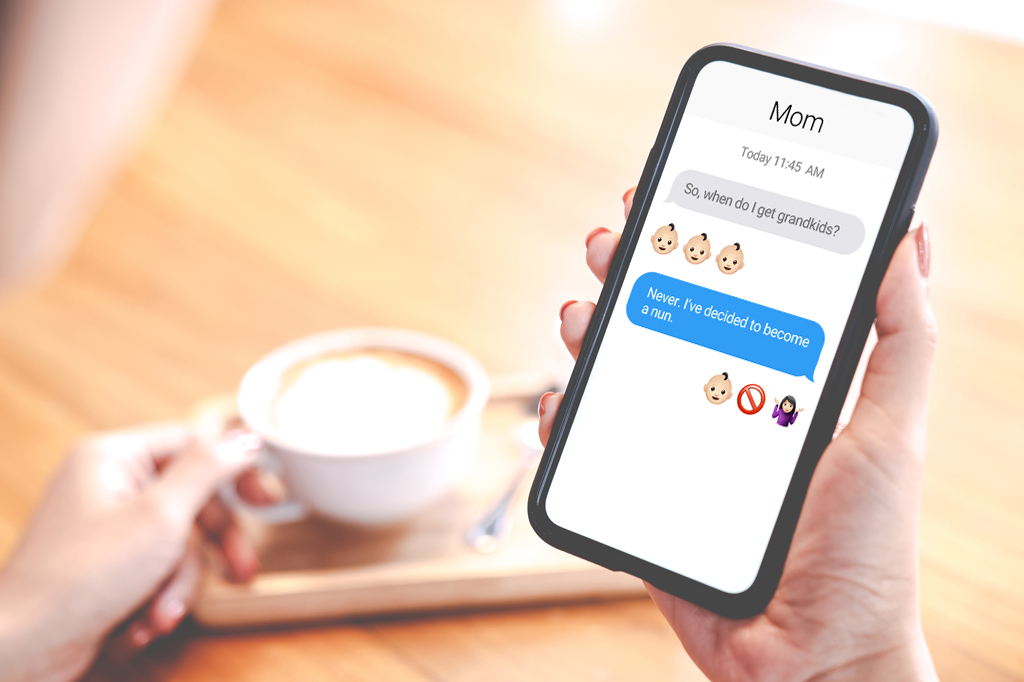
One challenge of choosing (or even considering) a childfree lifestyle is dealing with pressure from others. Even with the rising number of childfree adults, not having kids is still not the “norm.”
And anytime you’re not the norm, people will question you for being different.
Because how dare you be different, you rebel! If you don’t believe me, talk to any person who’s gay or unmarried after 40.
Pressure can come in many forms and from many sources, such as:
- Your Social Circle: When all your friends are getting married and having babies, it makes sense that you might feel left out or even crave what they have.
You might wonder if it’s your turn now, or worse, fear that your friendships will fade with time if your interests diverge too much.
Your friends might even urge you to take the plunge, partly because they don’t want you to miss out, but also because they want you to empathize when the newborn’s powerful cry is keeping them up every dang night.
And being unable to share in their experiences — beyond simply being a bystander — can result in feelings of loneliness.
Just as new mothers experience loneliness because they’ve taken on the responsibility of tending to children, so too can those who are childfree — because they may no longer have the opportunity to spend time with their friends who’ve become parents.
Additionally, as time goes on and those babies begin to grow up, your friends will likely attend Mommy & Me groups, they’ll get involved in school organizations, and they’ll meet new people to spend time with.
- Society: Society is that mean old teacher with the dark-rimmed glasses eyeing you anytime you even think about letting your mind wander in class. If you don’t fit into the social order, society will naturally want to pull you back in.
And despite how technologically advanced the U.S. is, there’s still a strong streak of traditionalism here that seems to believe women’s primary job in life is to have kids.
If you have a uterus, apparently you need to grow a child inside it.
- Family: Ah, family. They can be sneaky bastards if they want to be.
They had you, after all, so now it’s your turn to pay it forward and give them some grandkids to spoil, damn it!
But seriously, family pressure can be downright painful because while we’re all adults who can think for ourselves, there’s still a part of us that wants to please our parents.
- A Partner: A partner or spouse can offer even more intense pressure.
Maybe he comes from a big family and wants to continue the tradition, but you’re like, “meh”. Or maybe your partner said she didn’t want kids, then went and changed her mind.
Differing views on kid-having is the “Deal-Breaker” of deal-breakers, and it’s tempting to cave to pressure when you’re faced with losing the love of your life.
- Yourself: It’s easy to harp on all these external pressure cookers, but oftentimes the person who offers up the most powerful form of pressure is you. Because the truth is, if your mind was totally made up about going childfree and you felt it was the best decision, pressure from others would have FAR less power over you.
It’s natural to face this kind of pressure. It’s part of the journey.
Remember, for most of us, the Script Of Life goes something like this: you grow up, you get a job, you get married, you have kids.
And when everyone around you is doing those things and you aren’t, the pressure is bound to come from somewhere. The trick isn’t to get rid of the pressure — good luck with that — but to recognize it for what it is and come to terms with it.
How, you ask?
For one, unless the apocalypse has happened and the fate of humanity lies with you and your ability to bust out some kids, you don’t need to reproduce.
Nothing bad will happen because you chose to not have kids. The world will survive, and the people you disappointed will get over it.
Finally, ask yourself: Do you want kids, or are you afraid of what will happen if you don’t have them?
The last thing you want is to let FOMO, or a tick-tocking biological clock haunting you like a specter, scare you into a decision you don’t know you want.
Fear is a powerful motivator, but it can also spur you into doing the wrong things.
So, face the fear. Sit down and make a list of all the ways you feel pressure when it comes to having kids.
Who’s applying the pressure? How does it make you feel? Why do you feel you have to live up to that standard? What do you fear will happen if you don’t have kids, or if you do?
There are no right or wrong answers, only insights that will help you come to peace with your decision, whatever it is.
When choosing whether or not to have kids, pressure comes with the territory.
The Pros and Cons of Being Childfree
All Big-Life-Decisions have pros and cons, and choosing whether or not to go childfree is no different.
I know you’d love to just make a pro column and a con column and see which is longer, but it’s not that simple, unfortunately, as one doozy of a pro or con can obliterate everything else.
Instead, examining the pros and cons helps you make an informed decision rather than a reactive one.
Let’s start with the potential cons of choosing to be childfree:
Some women who were on the fence about having children found that they were glad they took the plunge.
One, when referring to her newborn, said, “I never expected to bond so much with the little guy.” Others said they developed a side of themselves they never expected like they “grew into” the parenting role and found meaning in parenting.
Others enjoy creating something they never had growing up.
Maria said that she wanted to create a better home than her alcoholic father did, whereas Jasmine said she had such good memories of growing up that she longed to do the birthday parties and the pretending to be Santa for her own children.
A more practical consideration mentioned by many parents I’ve known over the years was having someone to care for them in old age. Children traditionally take on that role, so childfree folks have to consider what they’ll do when they get old.
And, of course, not having kids means never getting to see what the genetic lottery would produce.
Would little Jessie get your eyes or Daddy’s big nose? Other parents like the idea of passing on their genes or name, an option the childfree don’t have.
As I mentioned earlier, childfree folks may have limited opportunities to spend time with their friends who are raising babies and children, and they’re not able to empathize with the experience of caring for either.
For this reason, you might experience feelings of loneliness as your social circle changes.
But that goes both ways.
Your friends who have children may also struggle to relate to your experiences as a childfree person, especially if you’re enjoying all of the benefits that come with that lifestyle, as we’ll talk about next.
Now for some potential pros for those choosing the childfree life:
On the other hand, those who go childfree report having more time and energy for personal pursuits.
Because let’s face it: children take a ton of both, especially when they’re young, and many women with children wind up waiting until children leave the home before they can shift their energy to painting, starting a business, or some other passion.
When you’re childfree, you have the option of going all-in with your career — without dealing with an ounce of working mom guilt in the process.
For example, Betty White admittedly chose to focus on her career over motherhood. And luminaries like Gloria Steinem, Oprah Winfrey, and Helen Mirren probably wouldn’t have achieved what they did if they’d had kids.
Here’s what these women, and many other famous women, had to say on this topic.
In addition, being childfree can mean you’re able to shift focus to helping other children.
In her 2011 memoir, Ashley Judd talked about choosing not to have kids and finding fulfillment in helping other children born into poverty and abuse.
This is not to say that mothers can’t achieve great things or help others, as they certainly can. But they can’t devote nearly the time or energy toward those pursuits as a childfree woman can.
Again, it’s a tradeoff.
Also, if you’re concerned about the environmental problems we’re facing or preserving resources for future generations, going childfree is one of the top ways to reduce your carbon footprint, above even going vegan and avoiding excessive air travel.
On a practical note, a childfree life means less financial strain, as diapers, dance lessons, medical insurance, and college cost money.
This is especially important now when the cost of living has exceeded wage increases and the average Millennial can’t afford to buy a house or pay for college
Finally, for those of you who have partners, kids can stress a marriage, big time.
The research is clear: childfree couples report greater happiness and a healthier marriage than couples with kids.
When it comes to thinking through whether kids are right for you, do your homework.
You May Face Judgment and Criticism — AKA “Breeder Bingo”
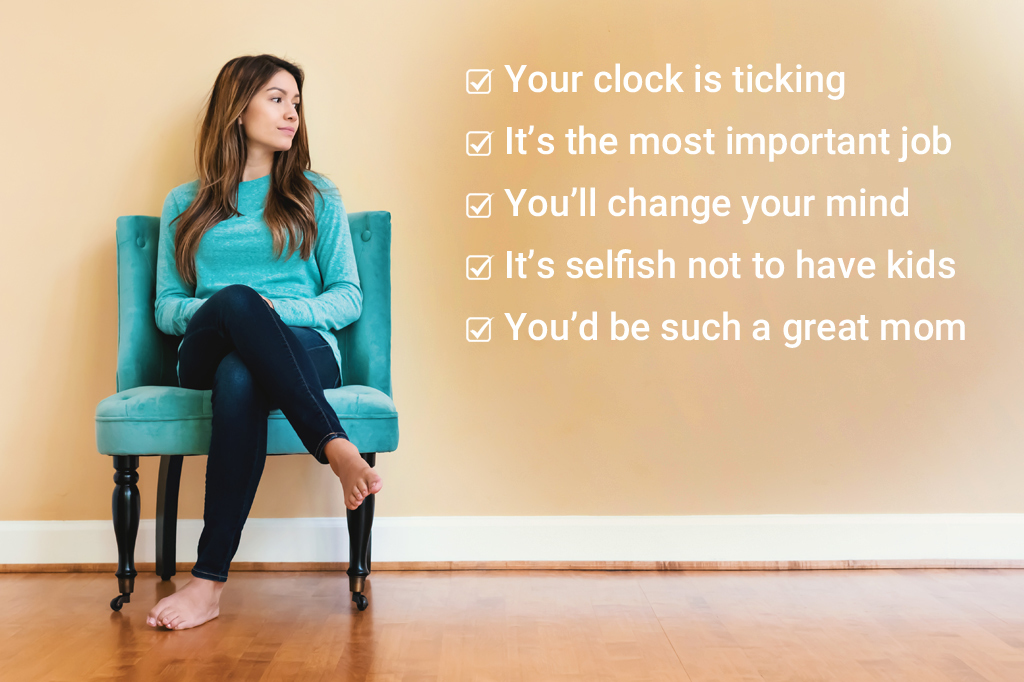
Earlier, I talked about facing pressure about going childfree.
However, as difficult as pressure is to deal with, at least it stems from well-meaning people who want the best for you and probably don’t understand your perspective (not yet, at least).
Criticism, on the other hand, is a different animal.
It comes from not-so-well-meaning people who love to judge. Perhaps to the surprise of nobody, many childfree folks get a lot of shit for their decision to not have kids.
For example, Jennifer Aniston has been called “selfish” and accused of being too career-oriented because she’s never had kids. Apparently, being an A-list TV and movie star—and dog lover—isn’t enough for some people.
So who are these haters, and why do they judge something that has no impact on them whatsoever?
Some are merely traditional, conservative, or religious types who still believe a woman’s job is to have kids, and they may toss out some good Breeder Bingo nuggets.
That may seem backward, but we all have our preconceptions about gender roles.
For example, how many of you still believe men should pay for dates or do all the fixing things around the house?
Other women report going to a doctor to get their tubes tied, just to be challenged by a judgmental doctor who tells her she should fulfill her feminine destiny by having kids or, worse, that she should put her husband’s needs first.
Still, other women report being called selfish, probably by those who are jealous of the freedom childfree women enjoy.
However, choosing to be childfree isn’t necessarily selfish, as many childfree women and couples have good reasons for their choice, such as environmental concerns, the belief they wouldn’t make a great parent, or not wanting to pass on “bad genes” in the case of physical or mental illness.
Yet, even if none of these apply to you and you simply don’t want to put in 18+ years of hard parenting time… so what?
We live in a world with a population of 7.5 billion and growing. The danger of human extinction is pretty low, people. This is a decision that literally hurts no one.
If you lean toward being childfree, your reasons are your reasons.
You don’t have to share them, and you don’t have to justify them. You just have to grow comfortable with your choice and know you’re doing the right thing for you.
If you decide not to have kids, you might get judged for your choice. Much like facing pressure, you have to know your why and get comfy with it.
Having Children But No Kids: Pets, Students, and Others Who Need Care

Another thing to consider is that there are many ways to be a parent, other than having or adopting children.
Raising healthy children is a way to contribute to humanity, but there are many other ways to do that.
For myself, I consider my scientific papers, my stack of published books, and my other writing and coaching endeavors as my contribution to humanity. In their own way, they make the world a better place and will continue to do so after I’m gone.
Think about the work a scientist does, or a teacher, midwife, or artist. Or a humanitarian, or even someone who does under-appreciated work like volunteering to help the homeless.
Their work impacts the world and leaves a legacy.
Also, children aren’t the only ones who need care.
People who rescue or adopt dogs, cats, and other animals get to nurture those creatures and save them from a crappy life.
Nurses nurture their patients, teachers nurture their students, therapists nurture their clients.
And if you don’t have children, it allows more time you can put into other people who need that care.
Closing Thoughts
As I’ve said, deciding whether or not to have children is a Big-Life-Decision that takes time and lots of consideration.
You want to make an informed decision and one that’s best for you and your needs, rather than follow a script handed down to you by others.
However, like any Big-Life-Decision, this one has tradeoffs and can lead to feelings of loneliness in some, even if being childfree was completely intentional.
You can’t have it both ways, and either choice comes with pros and cons. Fortunately, we live in a time where either choice is acceptable.
If you decide to go childfree, know that there’s a growing segment of people just like you and that your choice is just as valid and worthwhile as anyone’s.
For myself, I have no regrets at all.
Editor’s Note: This article is part of The Roots Of Loneliness Project, the first-of-its-kind resource that comprehensively explores the phenomenon of loneliness and over 100 types we might experience during our lives.
Find Help Now
If you’re struggling with loneliness while being childfree, we’ve put together resources to meet you wherever you are — whether you want someone to talk to right now, or are looking for longer-term ways to help ease your loneliness.
- Suicide Prevention Lifeline: 1-800-273-TALK (8255); Deaf or hard of hearing dial 711 before the number or connect via online chat
- Resources & Emotional Support For Loneliness
- Volunteer & Pet Adoption Opportunities


